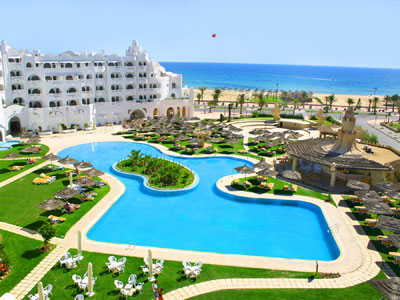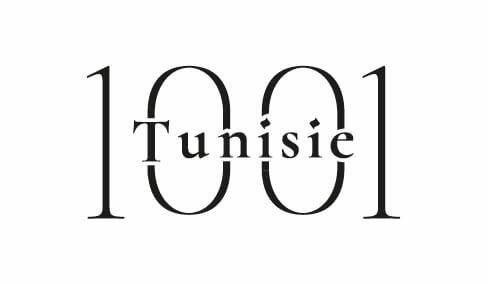
We are far from the time of the “30 glorious years” when the sector posted over 17% growth rate and stood as a locomotive for the Tunisian economy. Over the past ten years, the average dropped to 4.7%.
After January 14, 2011, things got worse and there is a real massacre. Hotels are closing by the dozens, undermined by the international situation, the bad management and the image of the destination that is deteriorating more than ever. Like gangrene that grabs a body not very holy, the issue of debt, which has long polluted reports in the medium, the more leaden. In this phase of democratic transition, all the initiatives for tourism out of the doldrums in which it is located fails on this complex issue.
Mingled with all the sauces, the question as to say the lack of solidarity between professional and causes division. Why good should they continue to suffer and pay for the poor? Basically, those who are doing want to clean up the sector to reap the destination up and move on improving the product, breaking the infernal descent prices, restoring reputation.
This is a claim made by a part of the Tunisian hotel that is doing more or less well and almost has a large majority of hotels built before the 2000s.
The number of Tunisian hotel facilities increased from 319 units in 1980 to 71,529 beds in 443 units in 1987 to 100,456 beds. 10 years later, the capacity totaled 178,176 beds. In 2005, it recorded 816 institutions, more than 630 classified hotels, with a total capacity of 229,837 beds. Today, more than 100,000 of almost 250,000 beds over 30 years. In the accumulation phase, the Tunisian hotel needs to think about its present pondering its future. It requires to grow the lines in terms of visions and strategies. Time for-all is over. And until the issue of debt is not resolved, a new page will be very difficult to write.
But in the face of what are the indebted? What is their story? Why are they getting there? Why did they decide to talk now? Do they have any solutions to solve their problems?
Those who cry foul now believe they are the butt of the joke and they were “deceived, usurped, abused by the banks and the state.” Basically, they consider themselves the victims of bad choices latter including projects like the “young entrepreneurs” and the tourist areas of Yesmine Hammamet or Tabarka or promoters of hotels built in areas of Saharan tourism.
Ridha Takatak, hotelier and vice-president of the Tunisian Hotel Trade Federation (FTH) is a leading voice raised against what he called “injustice.”
He meets over a lunch debate some professional debtors like him, and not for journalists to rewrite history but indignation and revolt against the proposals presented by the State with the imminent creation of a fund Investment debt to buy the hotel in question. He explains: “The State warrants the creation of an investment fund to buy the hotel debt. To whom will they sell the land ? Why ? In the name of what ? Why give to who knows who much more than what we ask them? Solutions, we have … Talk about it! We are treated like the plague! “If we have to stick to the figures, they are, according to him, enough talking. The Tunisian state has 48 billion debt including tourism debts representing 7% direct way and 19% of indirect indebtedness.
Ridha Taktak does not include “Why are we only talking about the hotel debt? What about other sectors? The sector is indebted to the tune of 2,200 billion dinars and receivables are classified in the order of 1.94 trillion. It is an overcharged artificial debt ! Why were the big groups pardoned and supported a bill and we were charged to save the banking sector that is nonetheless responsible for this situation? ”
In fact, these are some 300 hotels in concern, 1/3 of the national hotel industry. The BCT says that 17% of bank financing is monopolized by insolvent hoteliers. The side of the Ministry of Tourism recognizes that 10,000 beds are in great difficulties. Behind the scenes, the more radical claim that on almost 700 hotels that make up the destination, only 100 structures are performing. That finding is obviously not to the liking of everyone. Some painfully double the number believed to be large!
Fear of vulture funds
Clearly, debt placement and painfully weighs over 20 years in the sector. With several studies, Najiba Echouk, expert in accounting puts points on the I: “These are the conditions for financing tourism projects by development banks that were binding. Commissions on loans granted by these banks represent 15% of the principal of the debt. ” It deplores the rate of use of illegal interests practiced. Banks have seen the advance of contractual interest and that to lead to an irregular billing equal to 12% of initial interest. ”
The solution ? there is one of course, and according to the accountant it boils down to a consideration of the legal and financial irregularities that have been committed by the banks: “We must take urgent action in granting a discount on hotel the amount unpaid to date. The authorities do not want to admit they are faulty. They collected amounts irregularly “.
If some think that the old regime is still good to be criticized for creating fortunes not necessarily deserving, who do not have to take care of their sector, the accountant believes he “preferred to sursoir making fair decision that would hurt the financial sector. The consequences have been harmful to the overall economy ”
The current policy of the democratic transition of government is to follow the same path, or worse. Ms. Echouk explains: “After the revolution and in the search for the balance of the financial statements of banks, due to lack of liquidity and degradation by international rating agencies … A Council of Ministers decided to create a company asset management that would buy all hung sector debts and which will have exceptional powers of management and disposition of hotel units in difficulties despite the many irregularities committed by the banks. ”
A fund that indebted hoteliers describe as “vulture funds” and which they have fiercely opposed. In other places, such funds is often majority owned by the state itself.
Laurent Gonnet is an expert for the World Bank. Heis managing his Investment Fund dossier which were completely excluded professionals. He responds to the accusation in an interview he granted us a few weeks ago by saying that: “Funds” vulture “looking for a short-term profitability. We believe that the background for Tunisia should have a more economic approach in the medium / long term and not only financial in the short term. We must realize that, however, and it is the international experience shows, the funds must be able to act quickly. For this, he must be able to acquire loans at a price that will restore conditions for profitability of hotels. Clearly released from the excessive part of the debt, the industry may find new life “For him, the sector is simply a collection of individual companies. Only those who are in the financial waterline should interest the fund. Its duration should not exceed 7 to 10 years.
On the professional side, it sounds the alarm. Brader hotels in difficulties for the benefit of third parties is a highway for all desires and speculation. In the corridors, it points to investors from Gulf countries which have already started haggling quietly. Former tourism minister Elyes Fekhfekh dared to publicly declare to Turkish investors that Tunisia hotels are for sale. An odd or an omen?
For now, the draft decree should be subject to the approval of the ANC. Panicked, hoteliers want to pull the alarm and plan to begin a series of measures ranging from awareness of consultations and discussions with the authorities and plan to go to the court filing complaints with the Administrative Court .
However, recognizing their responsibility for their mismanagement and bad image they convey, being the gravediggers of their own companies and sectors, they also wear and especially the hat to the State which does not release the sky, environmentally responsible , but also for policy, promotion and facilitation of tourist city, …
For now, everything remains to be implemented for this “cleansing” of the area, ball in front of the destination is not the “best” that could be born the “worst” and turns into carnage.
What are the guarantees that this “revival” wished the Tunisian tourism is not guided by political or ideological aims of order? Why is the state granting to X what he wants to give to his own children? Is it a solely public fund, private, a public-private partnership? What will be the form of governance? What will be the initial allocation of funds? What are its powers?
Amel Djait
{mainvote}


 َAbonnez-vous
َAbonnez-vous

